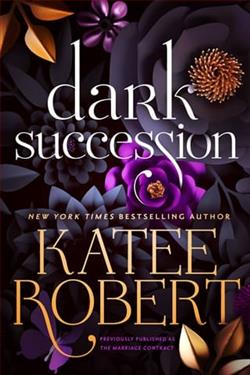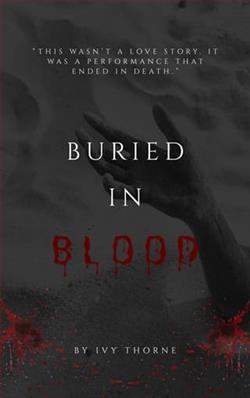Page 125 of Stardust Child
She was tying herself up in knots. Tearing herself apart. Behind her eyes, she saw it again, the moment in which Lady Hurrell’s mask slipped. But for the first time, Ophele was examining the event as an adult, rather than the heartbroken child she had been. Yes, the lady was a liar. But that did not mean that she did not sometimes tell the truth.
She hadwantedOphele to be weak. Afraid. Ignorant. Dependent. All the better to wrap her up and bind her and make her a puppet for the rest of her life.
But was that what Ophele was? Must she accept it? Or would she look upon the naked truth of herself, and decide to change?
In the gray light of morning, Ophele drew out her books, her silk thread, the Rendevan steel needles. And clumsily, she began to sew.
* * *
Sir Leonin of Breuyir was the fifth son of an Earl.
A fifth son was never reallyuseful.
Long before he was born, everything had already been settled. Leonin’s eldest brother would succeed as Earl. His second brother had gone to the Temple. His third brother went to the Tower, and his fourth brother went to hell.
The expectations for Leonin were correspondingly low.
“He dances well,” said Master Baronen, who had been the dancing-master for all of Leonin’s brothers and sisters.
“I can find no fault in his knowledge of the Imperial Code,” said Master Keirin, a scholar from the Library of Law.
“He is tolerable with the mandolin,” sniffed Master Phantilos, a rather finicky musician from Sachar Veche.
“He is exceptional with the sword,” acknowledged Master Criel, Third Sword of the Court of War, who would know.
That was the only area in which Leonin excelled, and not just because he had actually exerted himself. For the first fourteen years of his life, he had devoted himself with equal indifference to all his lessons as the path of least resistance. Etiquette, oratory, dance, music, conversation, the arts of wine and cuisine: none of them were difficult for him and his mother fussed if he didn’t pay attention. Easier just to get it over with.
From his sisters, he learned the secret languages of fans and flowers. He learned how to speak with the drawling indifference of the fashionable elite. He learned to watch for the least flicker of emotion in the faces of others, and school his own face into an expressionless mask. His father taught him to move among men; his mother taught him how to treat a lady. His brothers thumped him whenever they thought he had it coming.
And all of it was so stultifyingly, excruciatingly boring, that some days Leonin seriously wondered why he bothered getting out of bed. None of the typical activities of an aristocrat moved him in the slightest.
Hunting. Cold, filthy,early,and the prize was a dead animal.
Society balls, where the weight of feminine interest made him feel not so much like a prospective partner as a head of cattle being dragged out for breeding.
Salons, where no one ever spoke of anything that mattered.
“I want something todo,”he told his father once, frustrated that everyone else seemed to enjoy these things so much. “Isn’t there anything else?”
“You can do whatever you want,” his father replied absently, without looking up from his paper. Earl Breuyir read theGazettereligiously. “Just stay out of trouble.”
Stay out of trouble.Be an ornament to his House, make an advantageous marriage, and in due course sire a few unremarkable children. If he had had a passion, his family likely would have indulgedit, so long as it wasn’t anything unseemly, but Leonin couldn’t imagine what that would look like. Enthusiasm was gauche. Fashionable society disdained emotional displays as weakness. Everywhere he looked, everywhere he went, everyone was bored, bored, bored.
“You brats don’t know how lucky you are,” grumbled Master Criel. He was on the declining end of his years as a swordsman and complained often of a misery in his back, though he still walloped Leonin in their lessons. “Soft, easy lives. Ten years ago, you’d be singing a different tune, my boy, getting chewed up with the rest of us on the bridges of the Brede. Nothing like a war to let you know you’re alive.”
Those words took on shades of prophecy when, a few weeks later, Valleth crossed the Brede and sacked the city of Hassen. TheGazettesaid there were no survivors.
That wasn’t boring.
Even the fashionable elite couldn’t hide their excitement, especially when two more cities fell in rapid succession and refugees began to pour south from Firkane and Norgrede. Leonin was nineteen when Remin Grimjaw saved Lomonde, and in Segoile, his name was spoken with equal parts admiration and contempt. Though Leonin had never been interested in the work of knights or the play of tourney, he still went that year with half the city to see seventeen year-old Sir Remin sweep both the joust and the melee in the season’s competition.
There were a half-dozen men with him then, companions earning their own renown. Lord Victorin of Ereguil took the prize with his lance. The beautiful Sir Miche of Harnost was a walking scandal. And the otherwise unremarkable Sir Justenin caused a bit of a stir when a nobleman offered Sir Remin some insult, and Sir Justenin publicly flayed him with such cool eloquence, the man didn’t realize he was bleeding until Sir Justenin was thanking the hostess for a lovely time. People were quotingthatlittle speech for weeks.
These were not indifferent men. These were not bored men. Leonin had never seen anyone so furiously, defiantlyalive.
Why?
For Remin Grimjaw, to live at all was defiance. Maybe it rubbed off on the others. They passed in a nine days’ wonder in the capital, and after they were gone, it seemed as if only Leonin remembered them, andwondered with some envy if Master Criel had been right. Maybe mortal peril was what it took to reallylive.















